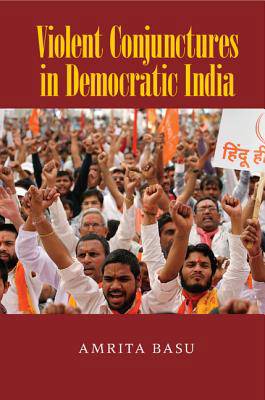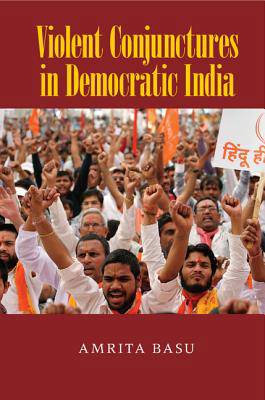
- Afhalen na 1 uur in een winkel met voorraad
- Gratis thuislevering in België vanaf € 30
- Ruim aanbod met 7 miljoen producten
- Afhalen na 1 uur in een winkel met voorraad
- Gratis thuislevering in België vanaf € 30
- Ruim aanbod met 7 miljoen producten
Zoeken
Omschrijving
This book is a pioneering study of when and why Hindu Nationalists have engaged in discrimination and violence against minorities in contemporary India. Amrita Basu asks why the incidence and severity of violence differs significantly across Indian states, within states, and through time. Contrary to many predictions, the Hindu nationalist Bharatiya Janata Party (BJP) has neither consistently engaged in anti-minority violence nor been compelled by the centrifugal pressures of democracy to become a centrist party. Rather, the national BJP has alternated between moderation and militancy. Hindu nationalist violence has been conjunctural, determined by relations among its own party, social movement organization, and state governments, and on the character of opposition states, parties and movements. This study accords particular importance to the role of social movements in precipitating anti-minority violence. It calls for a broader understanding of social movements and a greater appreciation of their relationship to political parties.
Specificaties
Betrokkenen
- Auteur(s):
- Uitgeverij:
Inhoud
- Aantal bladzijden:
- 357
- Taal:
- Engels
- Reeks:
Eigenschappen
- Productcode (EAN):
- 9781107089631
- Verschijningsdatum:
- 30/06/2015
- Uitvoering:
- Hardcover
- Formaat:
- Genaaid
- Afmetingen:
- 150 mm x 229 mm
- Gewicht:
- 635 g

Alleen bij Standaard Boekhandel
+ 334 punten op je klantenkaart van Standaard Boekhandel
Beoordelingen
We publiceren alleen reviews die voldoen aan de voorwaarden voor reviews. Bekijk onze voorwaarden voor reviews.








